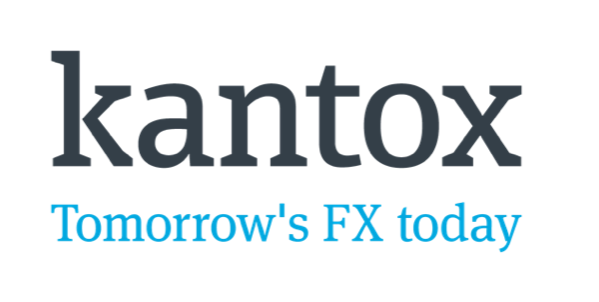“Fundraising is all about Darwinism: only the most persistent will raise money and survive”
Category: Interviews
KantoxPhilippe Gelisstartups
If fintech is transforming the financial services industry, Barcelona-based Kantox is right in the middle of such disruption. The four year old foreign currency exchange company is trying to transform the way companies and institutions operate, offering a less expensive and more transparent service than banks and traditional financial institutions.
To know more about the company and the fintech sector we sat down with Philippe Gelis, co-founder and CEO. What follows is an edited version of our conversation.
For those who don’t know you: who is Philippe Gelis and what’s Kantox?
I am the CEO and co-founder of Kantox, a pioneering firm in the foreign exchange industry. We provide SMEs and mid-cap companies with a transparent solution to manage and exchange foreign currencies, up to 90% cheaper than banks, and based on a P2P model. We have around 800 corporate clients in 18 countries and from 20 different industries, including technology.
Kantox
If I’m not mistaken, the company will turn four this year. How much has it changed since you and Antonio started off in 2011?
“Our mission is to maintain our freedom to innovate and disrupt the banking industry” Philippe Gelis
We started when fintech had barely come into existence, when people and investors did not yet believe that fintech companies might compete with banks. So it was challenging to get the first clients, to be regulated and to start trading. It was pure evangelism, meeting clients to pitch Kantox and to explain our vision of the industry, how banks were charging unfair, hidden fees. Now fintech is one of the hottest spaces in the tech industry, underlined by the recent successful Lending Club IPO. Billions are invested every year in fintech.
In December you exchanged more than $100M in a single month for the first time in your short history. What’s Kantox’s ultimate goal?
We will soon reach total trades of $1 billion, then let’s see how long it takes to trade the second billion, but the next big milestone will be to trade $1 billion every month. We always said that we are here for the long term. We are not here to sell but to go to an IPO. We want to be a profitable stand-alone business, which is the only way to maintain our freedom to innovate and to disrupt the banking industry: this is our mission. Money comes after.
Although most of Kantox’s employees are based in Barcelona, the company is registered in London. Is Spanish law still very unfriendly to fintech startups? Why did you decide to register in the UK?
There are 3 financial hubs globally – NY, London and Hong-Kong – and it is not surprising to see that theses hubs are those where regulation is most advanced and so more friendly to fintech. We decided to settle in the UK for three reasons:
- Regulation is the most advanced in Europe
- The FX eco-system is based there (40% of the global FX market is in London)
- It is a big market for us due to GBP
How do you see the fintech sector evolving over time? Are we witnessing the unstoppable disruption of many of the financial sector faces?
We are in the middle of the 1st fintech wave, with many companies disrupting “verticals” such as FX, lending, invoice discounting, payments, etc. This wave will continue for another 2 or 3 years most likely, and we will start seeing M&A and partnerships soon, with banks “buying” what they are unable to provide, which is a good user experience (what BBVA did buying Simple), transparent and fair prices.
Then, we will experiment with the second wave, the one that will really disrupt the market: fintech banks built from scratch. Once successful fintech entrepreneurs from the first wave build their second company, they will have enough credibility, experience and funding to get banking licences and directly compete with banks on their core business. Here I mean 100% online banks, based on connectivity and APIs, or “banking ecosystems”.
The origins of Kantox can be found in two entrepreneurship events like Startup Weekend and Seedrocket. How important do you think these initiatives are (pre and accelerators) to help and improve the ecosystem?
They are key in the sense that they help first time entrepreneurs structure their startup and they also give you a lot more confidence and credibility to move on. I have no idea if the death rate of startups backed by these initiatives is much lower to be honest. What is certain is that I remember many startups that have been awarded and went through incubators and accelerators and then failed. Startups are all about Darwinism in the end: only the strongest (and also luckiest) ones survive.
Based on your fundraising experience, what advice would you give to entrepreneurs who are raising capital for the first time?
“Fundraising is all about credibility, and you earn credibility over time” Philippe Gelis
With the recent “wannabe entrepreneur” bubble, we see more and more people who think that with money they can build anything, so their message to investors is “give me money and I will build a successful company”… then they do not get any money, they fail and they argue that it is because of investors. Fundraising is all about credibility, and you earn credibility over time, by getting to know investors, by telling them what you will do in the next 6 months and by doing exactly what you said you would do.
In most segments, you can build a product and get some traction with almost no money so do not try to fundraise before getting traction (fintech is a bit different because there is the regulation issue so you need money before starting). But fundraising is also all about Darwinism, only the most persistent will raise money and survive.







